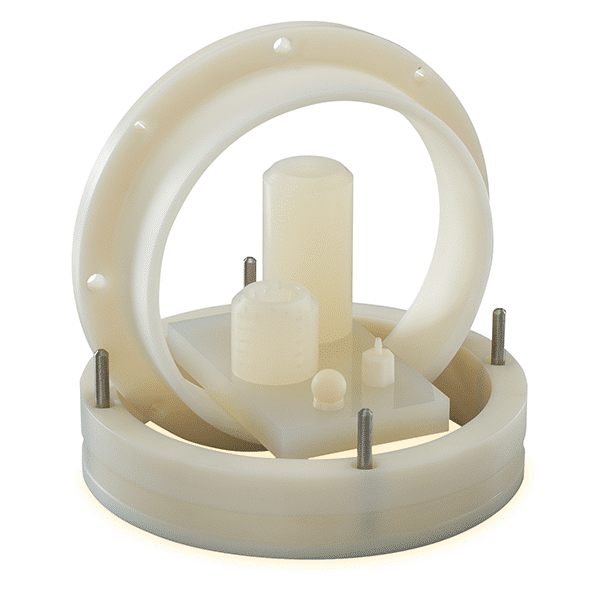polypropylene (PP) is a polyolefin thermoplastic. Polyolefins are partially crystalline thermoplastics which exhibit very high chemical resistance because of their non-polar nature. They include both polypropylene and polyethylene in various modified forms and, because they can be processed easily by conventional methods, are important plastics in widespread use.
polypropylene has a very low specific density of 0.91g/cm3 and is one of the lighter plastics. Its rigidity, hardness and strength plus the ability to be easily welded make it ideal for use in corrosion-resistant applications. It has good electrical properties and a high operating temperature.
polypropylene is non-toxic and authorised for use in the food sector; it is also resistant to diluted acids, alkali and salt solutions, water, alcohol and petrol.
Temperature range: -10°C to +100°C

Benefits
- Very good chemical and corrosion resistance
- High rigidity and hardness
- Low specific density (0.91g/cm3)
- High heat-ageing resistance
- Non-toxic for food contact
- High stress cracking resistance
Applications
- Screw connections
- Collar nuts
- Chemical pump components
- Clicking boards
- Food sector applications
- Chemical tanks

